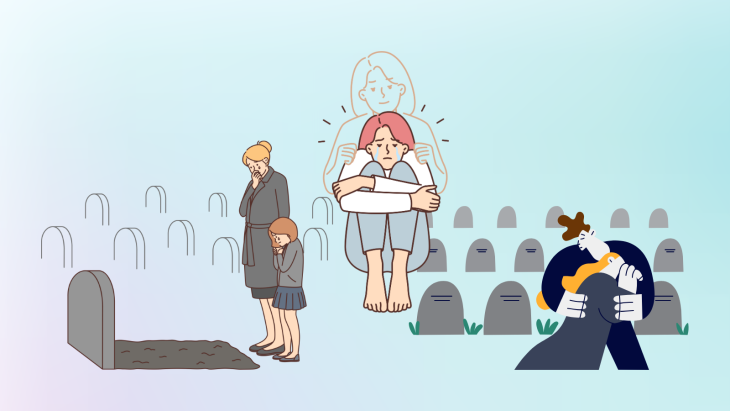Recent Posts
- Not feeling like yourself because of winter? What is seasonal affective disorder and why does the change in seasons make people feel bad?
- A big shift in hiring: Why is skills-based hiring taking off?
- Is it still possible to achieve inner peace and happiness in this busy and modern lifestyle?
- It hurts, but my teenage daughter said I need to develop some self awareness. I guess I should give it a try.
- What is broken heart syndrome and why are some people more vulnerable to it?
Most Popular
How can I support a loved one who is grieving? Ways to help others navigate grief and loss.

Everyday all around us, the number of people who feel the loss of a loved one adds up. Approximately 5 people, children and adults, grieve for each loss of life in the US.
Despite grieving being a normal part of life, many of us still find it difficult to either approach the topic of grief, or offer our support to loved ones undergoing pain.
Maybe, our struggle comes from misconceptions almost all in society hold about grieving and loss. But the late bereavement counselor Earl Grollman gives a succinct reminder of what grief is. He said, “Grief is not a disorder, a disease or a sign of weakness. It is an emotional, physical and spiritual necessity, the price you pay for love. The only cure for grief is to grieve."
What do we usually aim to accomplish in offering support to a grieving loved one?
It is natural for us to make a loved one feel better. Many of us even feel the responsibility of saying the right things at the right time in order to lessen or make their pain go away.
Studies of grief, however, tell a different approach to dealing with feelings of loss, anger, frustration, disappointment related to grieving.
Instead of putting it upon ourselves to make the grieving loved one feel better, we aim to walk with them through the natural process of grieving that may be unique to them.
This is a great guide question suggested by grief expert Megan Devine as we help people process their grief. “Am I trying to make my loved one feel better or am I trying to make them feel heard?”
Walking through grief with a loved one
There are two simple ways that can be effective ways to support loved ones who experienced a loss.
- Offer emotional support. This involves listening and/or simply being with them.
- Offer practical help. This involves taking on simple tasks that frees up space and time for your loved one to grieve.
Because everyone grieves in unique ways and circumstances are different for every individual, you can intuitively offer them your best help depending on what needs you see.
- Emotional support takes many forms. Your presence and your listening ear matter.
Your presence during the removal or the funeral is already a message of support. Briefly visiting them and checking on them to see what they might need also helps.
Commonly, people steer away from grieving people because we feel embarrassed and we don’t know what to do or say when we are around them. We think that maybe we might say the wrong thing and upset them.
Remember that at this difficult time, it is not your words or actions that will fix the situation or take the pain away. That is out of your responsibility and capacity. But your honesty of not knowing what to do and your presence, and your offer of help despite these things are powerful acts of emotional support.
- Practical support immediately after the loss and even some time after it gives your loved one opportunities to grieve.
As our loved one gradually learns to process their feelings and try to get back to their lives, we can offer help with everyday tasks. It is important for a grieving person to find the time and space to deal with their difficult emotions.
Here are practical activities that we can do for them to allow them the space they need:
- Household chores such as cooking, clearing the lawn, assisting with shopping, etc.
- Driving the kids to school or offering to take them from school to their home
- Give them access to support networks and let them know that they can always reach out. For example, a contact with a licensed professional counselor (LPC) or a grief counselor can give them an option to seek help.
- One thing to note when offering help is not to get offended if the help is refused.
Most often, recovering from a loss can look messy, and the emotions that need to be processed are heavy and not clear cut. Learning more about effective ways to offer both emotional support and practical help makes our efforts beneficial rather than harmful.
Check out the most extensive list of healthcare and mental health related careers and connect with career opportunities across the US.








Comments